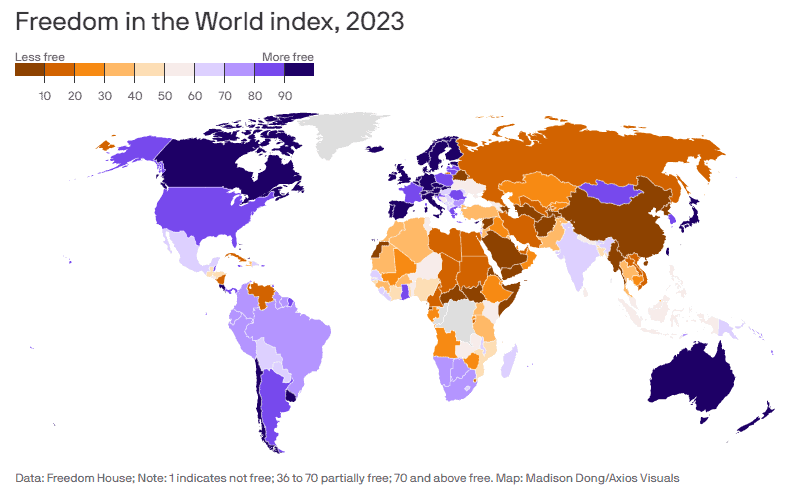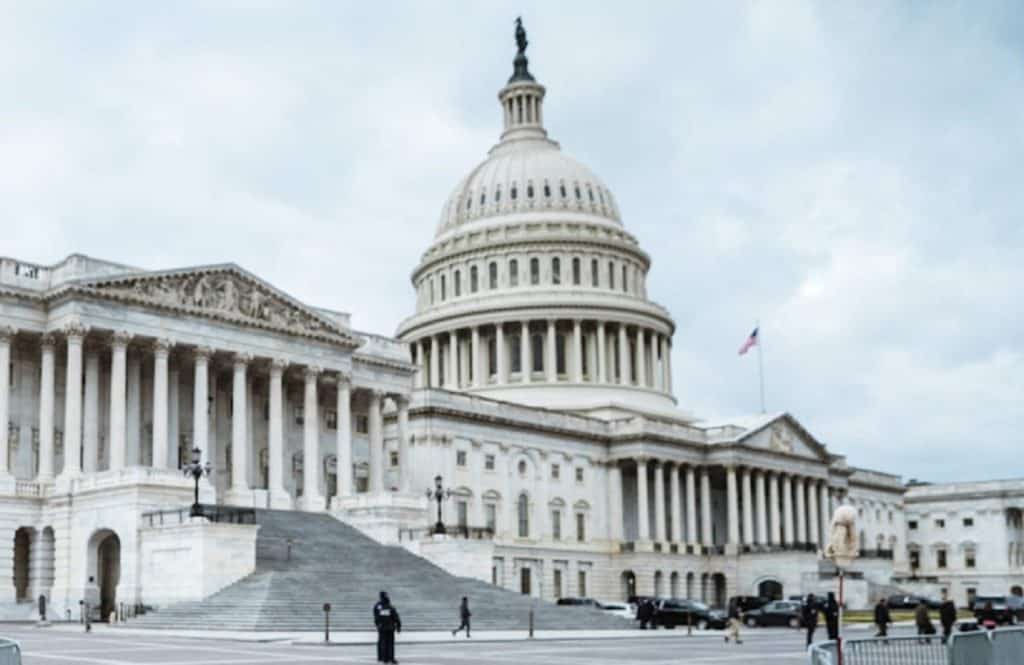By Shah Meer
In its recently published report, the Varieties of Democracy Institute claims that almost a third of the earth’s population lives in autocracies, and Freedom House has declared that 2022 was the 17th consecutive year of global democratic decline.

As the global power transition is progressing on an unmatchable pace, such developments are further turning vulnerable the liberal order already straining on a number of fronts.
In the interwar period of the 20th century, democracy faced irresistible setbacks due to right-wing waves and the rise of dictatorships in Europe. Hitler established the Third Reich, Mussolini aspired to revive the ancient Roman Empire, and Francisco Franco won over the Republicans. The Bolsheviks dominated in the Kremlin, while the French Third Republic and the British constitutional monarchy remained silent, deeming a reaction to these developments inappropriate -a policy now widely known as appeasement.
However, the post-World War II period marked the beginning of the rise of democracy around the world. From 1974 to 2005, democracy grew, as Freedom House notes, nearly 74 percent worldwide. It became the central value of the post-World War II political order. After the demise of the Soviet Union and the failure of communism, democracy became the only alternative for states, causing Francis Fukuyama to say that the unprecedented victory of democracy over other ideologies is “the end of history.”
Meanwhile, in the 21st century, democracies are losing control around the world not because of a surge in right-wing politics, but because of a number of issues. According to a report of the Economist, “The most successful idea of the 20th century is under attack – democracy is facing the crisis of confidence”.
Larry Diamond, an American sociologist and the renowned contemporary scholar on democratic studies claims that one of the reasons for the democratic decline in the world is the direct and indirect military interventions in civilian affairs, including in Russia, Thailand, Mali and Honduras.
In Africa, the experts of the Council on Foreign Relations remark that democracies are declining due to electoral authoritarianism – a process in which the elected leader refuses the peaceful transition of power due to the fear of accountability since regimes in Africa are mostly highly corrupt.
Populism is also antithetical to democracies around the world. India, the world’s largest democracy, declined is democratic status from Free to Partly Free, according to the 2021 report of Freedom House. In the book How Democracies Die, Steven Levitsky and Daniel Ziblatt critically analyzed the rise of populism in the United States, arguing that during the Trump era the spirit of democracy-the unwritten rules-has been violated for the first time in U.S. history.

Amid such severe blows to democracy, Washington and its allies’ “silence” is further deteriorating the scenario. Experts estimate that the US spends $424 million annually on democratic initiatives across the world, a tiny budget that equals the American expenditures on HIV/AIDS in Mozambique. Moreover, four-year back the then US Secretary of State Mike Pompeo remarked that the days of the dictatorship of Nicolas Maduro in Venezuela were numbered. Yet, Maduro’s stranglehold is still strong on Caracas. The military junta in Myanmar is not challenged by the US, and Washington is accused of toppling an elected government in Pakistan. This trajectory is not akin to Washington’s grand strategy of securing democratic values and backing it up with force in the early days of Pax-Americana.
The structural contours of democratic decline enumerated above only add fuel to the fire. In reality, democracy is declining not because it is becoming malfunctioning, but because it is losing relevance in human values.. For instance, China’s unprecedented rise and amazing performance of Arab autocracies in all spheres of society and statecraft left alternatives for mankind for developing not only on the lines of democracy. Seeing economic prosperity, the source of legitimacy is shifting from general will to economic well-being.
Similarly international supply chains are turning vulnerable and a spike in global inflation causing instability in local markets leaving hundreds of thousands of people unemployed and dragging millions below the poverty line. The effects of the pandemic are yet to be diminished properly. These developments are undermining the faith of people in global democracies.
It is pertinent that the prominent proponents of democracy must embark upon coherent strategies to assuage these developments. First, people’s faith must be restored in democracy while revitalizing democratic initiatives and addressing global issues. Second, the US has to increase its budget on democratic spending and accommodate allies in the campaign. Finally, global institutions must be directed to democratic growth.
Thus, amid the redistribution of power on an international level and waning American influence, the decline in democracy will further weaken the global rule-based order. The order in which every state has stakes and its fragility will hit low-income countries harder. Starkly, the future lies in the status quo.
Author: Shah Meer – Intern working on strategic affairs, nuclearization and emerging technologies in IR at Balochistan Think Tank Network, and graduate of International Relations from University of Balochistan, Quetta, Pakistan. He has been writing on several national and international platforms on competing strategies, democratic recession and rise of populism, and climate change.
(The views expressed in this article belong only to the author and do not necessarily reflect the views of World Geostrategic Insights)







